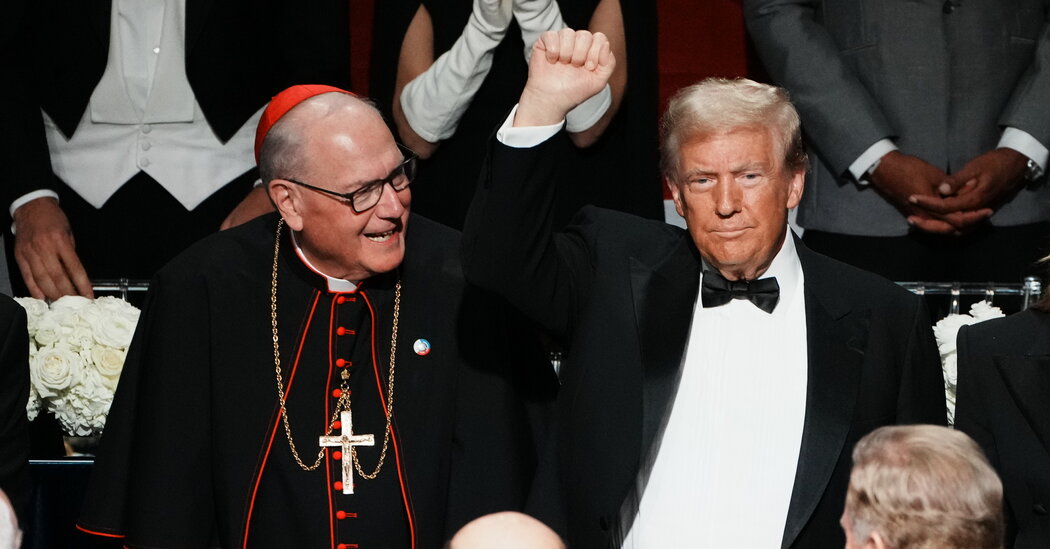Kamala Harris Faces Tough Questions in Fox News Interview: Key Takeaways
In a bold move to connect with conservative voters, Vice President Kamala Harris sat down for a challenging interview with Fox News anchor Bret Baier on Wednesday. The exchange marked her first appearance on the network during her presidential campaign, and it was anything but easy. Harris tackled contentious topics such as immigration, President Biden’s mental fitness, and the looming threat of former President Donald Trump to American democracy, all while navigating Baier’s aggressive questioning style.
Breaking Away from Biden
One of the standout moments of the interview came when Harris attempted to distinguish her potential presidency from that of President Biden. When asked how her administration would differ, she asserted, “My presidency will not be a continuation of Joe Biden’s presidency.” This statement signals a strategic pivot, as Harris has previously been criticized for not clearly articulating her own vision apart from Biden’s. While her comments were more rhetorical than substantive, they suggest a willingness to carve out her own identity as a candidate.
A Confrontational Interview Style
From the outset, Baier was relentless, interrupting Harris frequently and echoing right-wing narratives. His approach was reminiscent of past contentious interviews, with many viewers recalling how similar tactics were used against Hillary Clinton in 2016. Baier’s interruptions often came just as Harris was beginning to articulate her points, leading to a back-and-forth that at times felt more combative than constructive. At one point, Harris had to remind Baier, “You have to let me finish, please,” highlighting the challenges she faced in getting her message across.
Targeting Conservative Women
Despite the tough environment, Harris’s campaign sees value in reaching out to conservative-leaning women, a demographic they believe could be swayed by her character contrast with Trump. However, the interview largely focused on immigration and border security—topics that are seen as weaknesses for Harris among undecided voters. While her campaign had hoped to discuss issues like abortion rights, which resonate with female voters, those topics were notably absent from the conversation.
Redirecting the Narrative
Throughout the interview, Harris made a concerted effort to redirect the narrative back to Trump, particularly when Baier pressed her on the administration’s border policies. She expressed condolences for families affected by crime but quickly pivoted to criticize Trump for his role in undermining bipartisan solutions to immigration issues. “Let’s talk about what is happening right now with an individual who does not want to participate in solutions,” she said, referring to Trump.
The Limits of Outreach
While Harris aimed to present herself as a candidate willing to engage with Republicans, the interview underscored the skepticism she faces from the GOP base. Despite her attempts to highlight her bipartisan efforts and the support she has received from former Republican officials, the reality remains that many in the Republican Party view her with disdain. This dynamic poses a significant challenge for her campaign as she seeks to balance outreach to moderate voters while maintaining support from her progressive base.
Turning the Tables on Trump
In a particularly notable exchange, Harris flipped a Trump campaign attack regarding her support for transgender rights back on him. When Baier played a clip from a Trump ad criticizing her stance, she pointed out that the policies in question were actually implemented during Trump’s presidency. “Frankly, that ad from the Trump campaign is a little bit like throwing stones when you’re living in a glass house,” she quipped, showcasing her ability to counterattack effectively.
Conclusion
Harris’s interview with Baier was a high-stakes attempt to broaden her appeal to conservative voters while navigating a hostile environment. While she made strides in asserting her independence from Biden and pushing back against Trump, the challenges of reaching across the aisle remain evident. As the campaign unfolds, it will be interesting to see how Harris balances her outreach efforts with the need to energize her core supporters.



